Living With Your Gastrostomy Feeding Tube
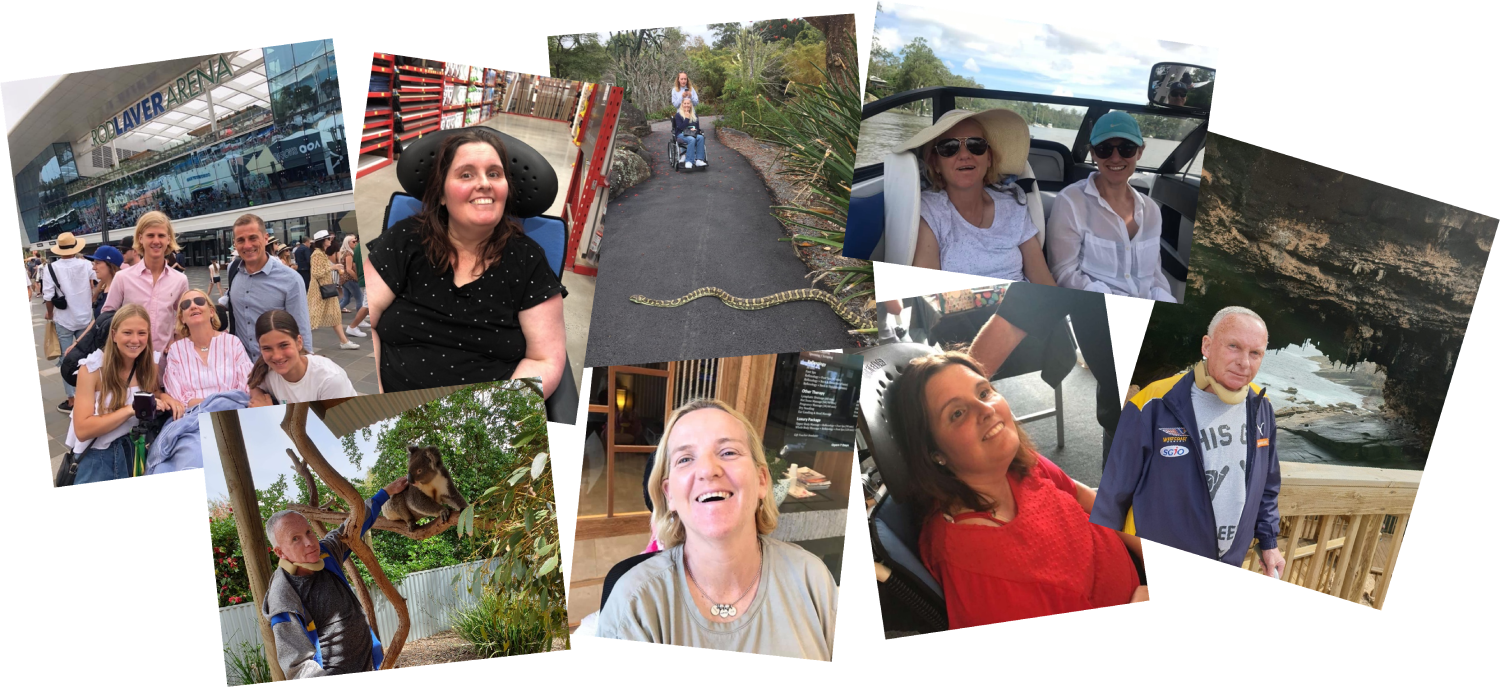
How to Care for your Gastrostomy Feeding Tube
You will be provided with instructions on how to clean and manage your Gastrostomy feeding tube once it is placed. Here are some simple but important cleaning tips that will become part of your daily routine. It is important that you follow these steps daily even if you are not using the tube for feeding.

Flushing the Gastrostomy Tube
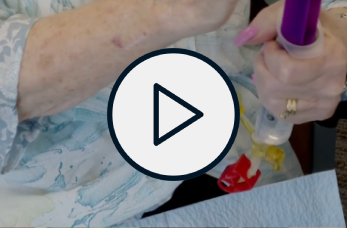
Click here to watch how to flush the tube (1 minute video)
Rotating the Gastrostomy Tube
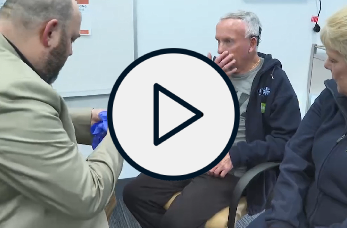
Click here to watch how to rotate the tube (1 minute video)
Your Gastrostomy tube should be rotated 360 degrees in one full circle once daily UNLESS you have stitches holding the tube in place (e.g. for a RIG). Rotation of the tube keeps the openness of the exit site.
Securing the Gastrostomy Tube
Having a secure tube is likely to make you feel more comfortable in everyday life. It reduces the risk of being pulled or dislodged. There are some options for keeping your tube out of the way during every day activities.
Tape
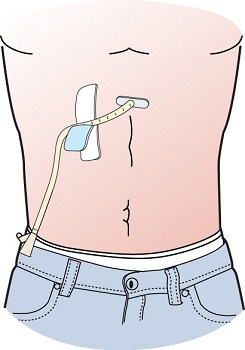
Medical grade tape is strong, breathable and designed to stick to skin. Many people use tape to secure their Gastrostomy tube because it is quick and easy to use and carry with you. Tape may irritate some people’s skin. If this is the case, speak to your doctor for alternatives. There are many different types of medical tape available at your pharmacist
Gastrostomy Pouch
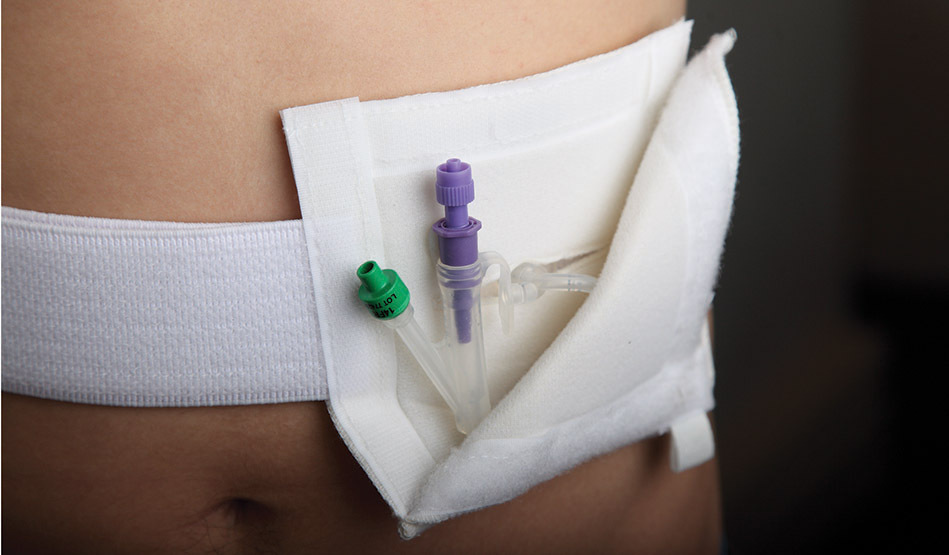
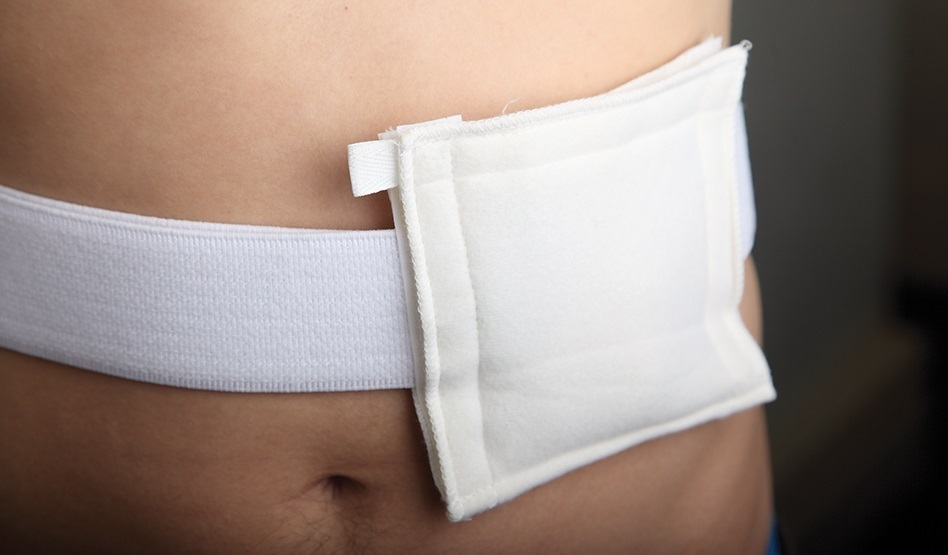
Click here to watch a video
Advantages
- Soft, discreet and comfortable to wear
- Available in two sizes
- Machine washable
Considerations
- May be difficult to open the Velcro seal for people with limited manual dexterity
Gastrostomy Tidy can be purchased from AMSL Medical for $80.00 (excluding shipping). Phone (02) 9882 3666 or order online via link: https://amslmedical.com.au/products/gastrostomy-accessories?variant=43700322271475
If you receive government supports, you may be able to get the Gastrostomy Tidy funded under Assistive Technology. Check with your Home Care Package Coordinator (over 65 years) or NDIS Coordinator (under 65 years).
Storing Feeds
- Store unopened formula in a cool, dry place.
- Store opened formula in a fridge.
- Throw away opened, unused formula after 24 hours.
- Do not heat formula.
Any formula that is stored in the fridge should be taken out 30 minutes before feeding to reach room temperature. Cold feeds may cause stomach issues such as bloating, diarrhoea or feeling like you have to vomit.
Gastrostomy Tube Lifespan
Gastrostomy feeding tubes usually last in place for twelve months before needing to be replaced or removed. However, the period of time that the tube lasts can vary. Some tubes have removable parts which can be replaced if needed. For more information, speak with your medical team.
Switching to a Button PEG
| After having the gastrostomy feeding tube placed, you may like to switch to a 'Button' or 'Low Profile' tube. This may be considered for people who prefer a more discrete feeding tube option. A gastrostomy tube can generally be switched to a button after 3-6 months, once the tube opening has had enough time to heal. This is done as a quick, painless outpatient procedure, not requiring any anaesthetic. Feeding with a button is the same as with a gastrostomy tube. The only difference is that during feeding, the button needs to be connected to the feeding set with an adapter. Your nurse can show you how to connect and care for these. | 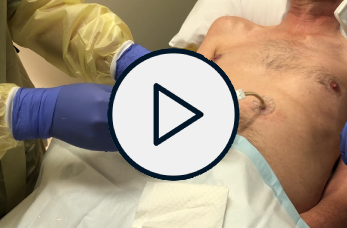 Click here for a video of Chris getting a Button (5 minutes) |
Bathing and Swimming
You can begin showering and washing 1-3 days after the tube is fitted.
Generally after 1 week, you are able to take a bath. Make sure that your tube is fully closed before bathing and to carefully dry the feeding tube and exit site after bathing.
It is recommended to wait before swimming until your stoma (tube exit site) has healed. This usually takes 6-8 weeks. When deciding to go swimming, there are some helpful tips to consider:
- Make sure all ports/clamps on your tube are closed before swimming
- Ensure the tube is well secured to your body. You may like to use waterproof tape and/or dressings
- Ensure the exit site is cleaned and dried after swimming
- Consider the water quality before deciding to swim. Well-maintained chlorinated or salt water pools and most South Australian beaches are safer options. It is best to avoid lakes, ponds and rivers. Still and murky water tend to have more bacteria, which can increase your risk of infection.
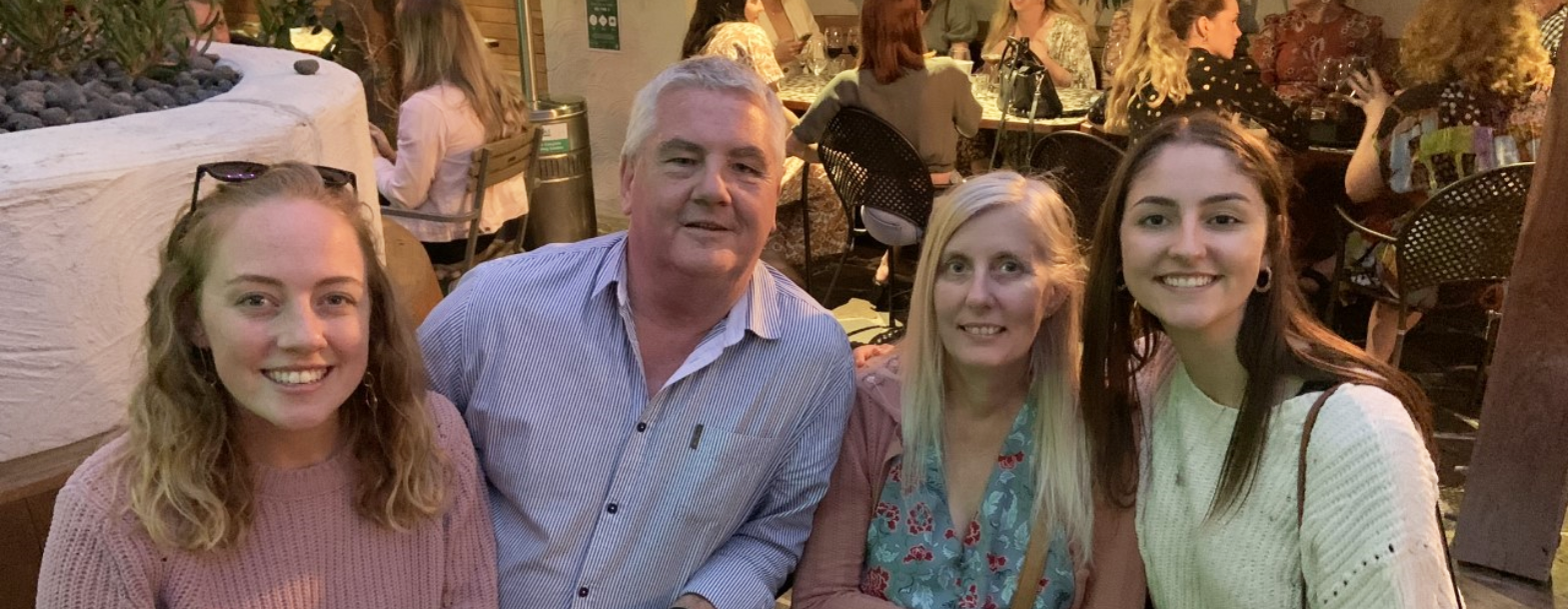
Holidays
While there may be some extra things to consider, you can still go on holiday with a gastrostomy tube.
Common things to consider:
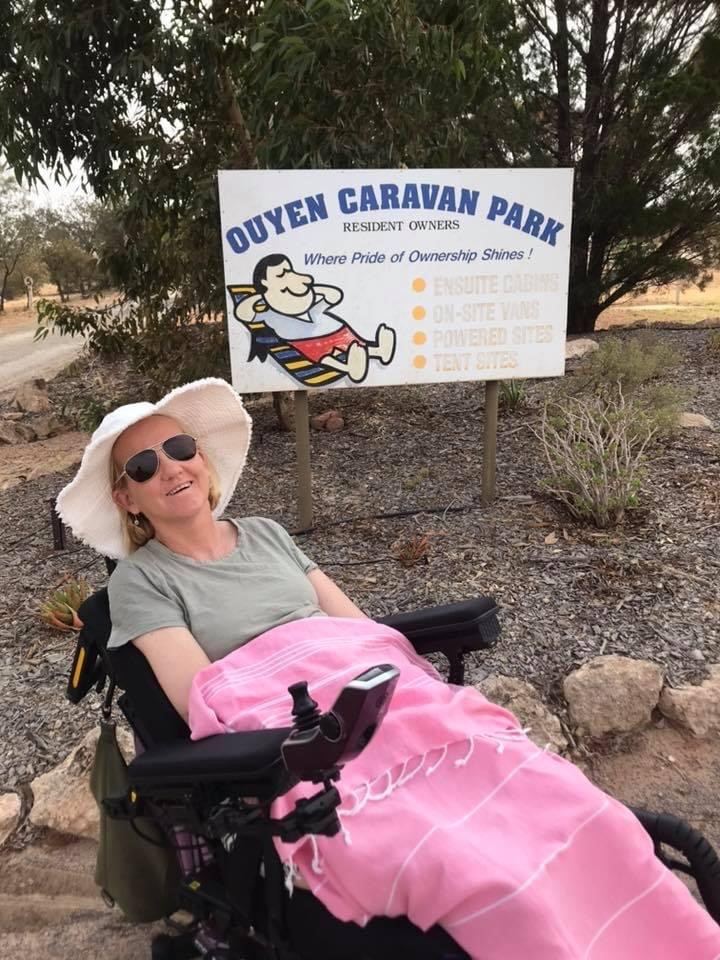
- Travelling with feeds
Your dietitian may arrange for your feeds to be delivered to the address you are staying at. For example if you are heading interstate to stay with family or friends.
If you are travelling via airplane, you can get special baggage allowances so that you can pack your feed without it costing extra money.
- Emergency planning
It is important to have a plan for if something was to go wrong. It may be helpful to know where the closest hospital is and who you can contact for help. You may also like to bring a summary of your medical records.
 |
"Since having my PEG I have been to Arnhem Land to visit my son and to Brisbane for a wedding. Right now I am planning a trip to Sweden for my niece's wedding!" - Person Living with MND |
Page 4 of 6